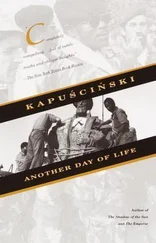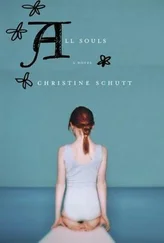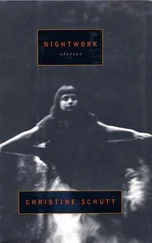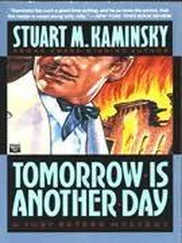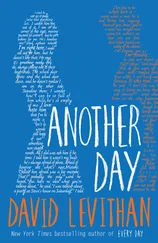And this is important: only Netta’s hands are pretty, which is why Netta is so jealous of Agnes. Agnes is beautiful all over. That’s the word used, beautiful, and once a boy in a boat used radiant to describe her. “The radiant Agnes under her umbrella,” he said, then something else, but what it was Agnes does not remember.
Agnes does not want to remember everything.
Faye says that even parked near the glass doors, parked with no other place to look but out, our mother will not look out. She refuses to be jogged from the lake. Snowed-over shapes, rain, passing coats, none of what is happening around our mother is happening. The way our mother sees it, she is sixteen.
Agnes is sixteen years old. She wants to quit school, go to Italy, and study art. She is interested in the men, too, yes, sure, that’s true. At sixteen, Agnes is a sweet sweet on sweets — she won’t deny it. Also, and not to be forgotten, Agnes is rich.
No wonder then that Daddy wants her in the Shepherd, away from all the boys and to himself. No wonder then that she can’t stay in school — could anyone? Agnes wants to go to Italy and paint, and oh — why not say it? — she wants to fuck around; she is luxurious.
Luxurious women do not need big breasts — that’s a myth, although Agnes contends Daddy likes them. Lucky then that the witchy wife has them — and her hands, of course, her pearly nails; but Daddy likes his witchy wife’s heavy breasts. These Agnes has seen Daddy straining after from as far away as the pier. They are a whiteness under the close lamp; the rest of Netta is smudged. Gray, beige, claret, brown, of these Netta usually wears brown. Even in the summer she wears long brown skirts and horrible shoes, like men’s shoes with stacked heels. The hats she picks to wear are squat; flowers, birds, and clouds of veil are perched on them. Each jewel she owns has a blouse to go with it. Netta’s is a grave style — but her daughter! That Agnes! Her wispy daughter is another story. Wispy, yes, slight, whimsical, coy, feathered, birdlike, catlike are all words used to describe that girl.
Where did Agnes come from?
Who taught her how to dress?
Agnes is walking in mismatched shoes. She is wearing white when she should not, wrong clothes to right affairs. To the parties her mother approves of, Agnes comes breathless and late.
None of this matters now. Our mother can be late or she can be early. “Calm down!” Faye says they have to say to her. “Agnes, dear, calm down. You haven’t missed a thing. You’re on time.”
Our mother cries, “I am sorry,” and she tells the nurses that she is painfully, painfully, painfully shy, although no one would know it to watch her. No one would guess how hard it is for her to talk when there are so many people in the room. Our mother is, she confesses, a long tremble. She stays in her chair. She says, “I have to be careful I don’t fall.”
Our mother stays in her chair now most of the time, slack as a bathrobe, tottering, mumbling, giving her excuses to the floor.
“Yes,” we say to Faye, “we have seen her, we can guess.”
Our mother asks the same questions.
We are thousands of miles away from our mother — have been for years — and yet our mother asks, “Are you with Netta and Daddy? Are you out at the lake?”
Our mother says, “I don’t think Netta likes me anymore. She never comes to visit.”
That must be why Agnes goes back to the lake long after she has left sixteen: it is to see her witchy, jealous mother, who even from her bed on her back at eighty is castigating, “Agnes…what are we?” when Agnes is not sixteen anymore. She has not been any trouble for years, although she can’t remember where she put her babies. Her babies, the boys, the dead ones — these are her troubles, these are what Agnes has to be sorry for.
There are dead horses in the home state, dead babies; she begins to make sense.
“Oh God, oh God, oh God, oh God!” our mother cries, or else Mother speaks to them, the boys, the dead babies. She says their names and cries.
Mother never says she drank.
Our mother has seen her sons through the scrim of the other side. She has talked to them. She tells Faye the boys are grown up. They are young men with Daddy’s eyes.
“Not yours or yours,” our mother says, and she swears at the nurses. “Yours are shit.”
Faye tells us; Faye tells on Mother.
Faye says one of the nurses slapped our mother by accident when Mother tried to work her way out from under the belt they use to secure her. Our mother is a danger to herself and will sometimes try to walk. She will get to the lake however she can. “Better not try it!” Faye says, and she tells our mother it is cold outside. The lake is frozen.
Snowless, black, flecked with frosts, the lake is a starry sky with Agnes skating on it. She is a skater. No one would believe it to look at her — but look! Her ankles are bone; skates don’t hurt. Only the cold hurts. It blows at the bridge of her nose and gives her a headache. Skating home, she is skating into the wind. The arctic air hits the tops of her legs, which is why she can’t move them now! “For God’s sake,” Agnes says, “tell Netta to get the Epsom salts, and tell her no cold water, please!”
Our mother says the camp food stinks. She says, “Oh, boy, when I get home.” When she gets home, she wants a lot of Hattie’s custard. “Tell Netta,” our mother has instructed us, my sister and me, “tell Netta to ask Hattie, please.”
Faye says that the day nurses often report on our mother’s unwillingness to eat. Our mother says, “This is not what I ordered!”
With Daddy it is baked Alaska. With Daddy it is the Waldorf, where Agnes wears a hat and lots of lipstick. The reason she has no eyebrows is she has no eyebrows! Her hair is still white blond but short, very short, a boy’s on a face with a punched-out mouth. Some part of her there is always swollen. The ledge above her eye, a greater prominence in places prominent — here and here and here — Agnes tends these greater lumps. She wraps elbows in Ace bandages, holds ice against her jaw. “She is a mess,” the witchy jealous mother tells anyone who asks. “What happened this time?” This time, like the last, Agnes simply did not look. She never looks but that she runs, runs after whatever it is rolling away on the incline. The witchy mother says, “Lucky Daddy isn’t alive to see this.”
Our mother’s fingernails are yellow.
“Poor thing,” Faye says, but she lets our mother ring and ring, knowing what it is she wants, which is just what she can’t have.
Our mother, on the phone, says, “My brothers don’t like me. They think I am bad, but I am not. I am trying to be good. I want to go back to the lake.” And she does.
Our mother is sixteen. Under the umbrella and oiled against the sun and half asleep, she is an open jam jar in the heat, a white honey, an edible fragrance, a light the boys look up at from their boats. “Agnes,” they say, with nothing else to say. They use her name and idle near her, rocking on the wakes of other passing boys, always someone, someone waving, calling out, “Agnes!”
Agnes has a flask, too; Agnes drinks and smokes and knows the names to pills.
No wonder then that Daddy says, “In the boat, Agnes, now.”
In the Shepherd Agnes holds out her hand and rakes the water. Agnes says, “Daddy is right about the boys. I always pick the wrong ones.” Faceless men whose faces she knows are some of what she sees in the water.
Faye says our mother says that as soon as Daddy gets here, she is leaving. Cars can be heard cracking over the gravel. Our mother hears the cars and cries out, “Daddy’s sent old Peter for me. I knew it!” The nurses wheel her out of the bingo room because she is crying. Our mother is crying, “I want to go out in the Shepherd with Daddy and see the races.”
Читать дальше



